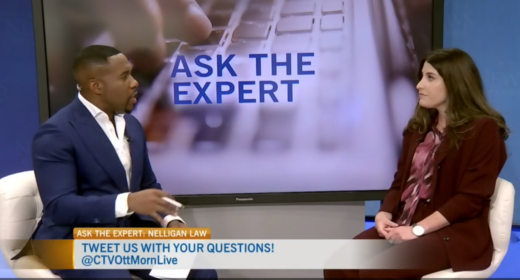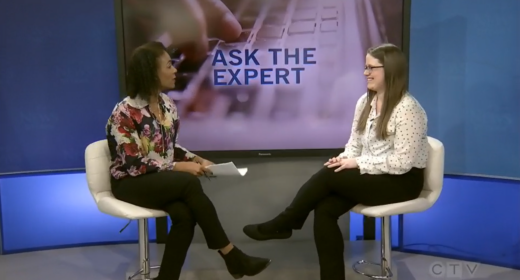This article originally appeared in the May 2018 edition of Fifty-Five Plus Magazine.
Professional vs lay person as estate trustee – What are the costs? Is one type of estate trustee better than another type?
An estate trustee is the person or one of the people that you name in your Will to take care of all of your personal belongings or your financial assets after you have died. The options of who you could name as your estate trustee are endless. For example, your estate trustee could be:
- your spouse
- your adult child
- any of your friends
- any of your relatives
- your lawyer
- a trust company; or
- a financial advisor at a bank.
Who you ultimately choose as your estate trustee will depend on a number of factors, including your family dynamics, your age, the age of your children, the age of your friends, their mental capacity, their willingness to do the work and the potential value of your estate at your death. The only rules with regards to who can be named as an estate trustee are that the individual must be at least 18 years of age and must be mentally capable. Ideally the potential estate trustee should not have a recent criminal record and should not have filed recently for bankruptcy. They should also be trustworthy and diligent.
General Duties of an Estate Trustee
Some of the estate trustee’s duties are:
- Making proper funeral and burial arrangements. Contrary to what many people believe, unless you have preplanned your funeral and burial arrangements, these arrangements are not made by a surviving spouse or other family members. The arrangements are made by your estate trustee;
- Determining that the Will appointing the estate trustee is the last Will of the deceased;
- Determining the names, addresses and ages of the beneficiaries;
- Notifying the beneficiaries of their interests in the estate;
- Determining the nature and value of the assets of the deceased and compiling a detailed inventory that includes the contents of the safety deposit boxes;
- Determining what debts were owed at the time of death and arranging for payment;
- Hiring a lawyer to obtain advice with respect to the administration of the estate, and to apply to the Ontario Superior Court of Justice for a Certificate of Appointment of Estate Trustee, if required, and completing the Estate Information Return Form;
- Ensuring that property is protected (e.g. that real property has sufficient insurance and appropriate supervision);
- Contesting and/or settling any debts, the validity of which is in doubt;
- Opening an estate bank account;
- Preparing and filing the necessary tax returns in all relevant jurisdictions and paying any tax owing;
- Maintaining proper accounts;
- If required, providing the beneficiaries and the Court with an account of all dealings with the estate assets during the term of the estate administration;
- Setting up and administering any trusts established by the Will; and
- Distributing the assets according to the terms of the Will and obtaining releases from the beneficiaries.
Making Decisions
The person who is named as the estate trustee has a high degree of responsibility to make decisions regarding your assets. A lawyer can help to guide the person who is named as the estate trustee, but the decisions must be made by the estate trustee and cannot be delegated to any other person.
It is the decision of the estate trustee as to whether to hire a lawyer to advise them in the administration of the estate, or because there is legal work required in the done for the distribution of the estate assets (i.e. sale of a house).
Lay Person as Estate Trustee
The qualities to consider when choosing a family member or friend as your estate trustee are their availability, their reliability, their financial responsibility and their capacity to remain objective.
It is preferable that the estate trustee lives in the same city as you or in a close geographical region, so that the work that needs to be done to administer your estate can be preformed without any additional expense being incurred by your estate. Your prospective estate trustee should be reliable, because, depending on your assets, the potential estate trustee may be required to deal with any outstanding insurance or litigation claims that were not resolved prior to your death.
Your choice of estate trustee should also be financially responsible. They will be managing your assets and, in some cases, managing a trust for any minor children or grandchildren. As trustee, the person you choose may have to make investment decisions for the trust.
If your spouse or your adult child are going to receive the bulk of your assets, then either your spouse or adult child may be an excellent choice for your estate trustee. If you think your spouse or adult children is not able to handle the responsibility because of their grief or because of your family dynamics, then you may have to consider appointing a relative, friend or a neutral third party as your estate trustee.
Professional Estate Trustees
You can also appoint a trust company or a professional as your estate trustee. There are advantages and disadvantages to this option. A trust company or professional may provide a high level of experience in managing investments, estate accounting and other estate administrative tasks. A professional estate trustee offers permanent and impartial administration of the estate, which might be helpful if there are estate assets that will remain in trusts for a lengthy period or if there are family dynamics that need to be navigated. On the other hand, trust companies and professionals are sometimes perceived to be inflexible and less responsive to personal needs than an individual estate trustee.
Estate Trustee’s Compensation
Whether you appoint a lay person or a professional to be your estate trustee, under section 61 of the Trustee Act, an estate trustee is entitled to a fair and reasonable allowance for the time spent administering the estate. If the beneficiaries are all adults, then they can agree upon the terms of the compensation. If the estate accounts are audited, then the Ontario Superior Court of Justice may award compensation. The entitlement to compensation may also be specified in the Will.
Generally, an estate trustee is allowed 2½ percent of capital and income receipts and 2½ percent of capital and income disbursements, plus 2/5th of 1 percent of the annual average value of the assets as a care and management fee. The compensation received from acting as an estate trustee is taxable.
When appointing a professional estate trustee, the trust company or the professional will discuss the fees with you in advance and you may be required to sign a fee agreement in advance of death.
Conclusion
The decision of who should be appointed as your estate trustee is a personal choice. You are the best person to decide if a family member can handle the responsibility of administering your estate, or whether a neutral third party is better suited for the job.
For more information on appointing an estate trustee, contact our Wills & Estates Practice Group.


